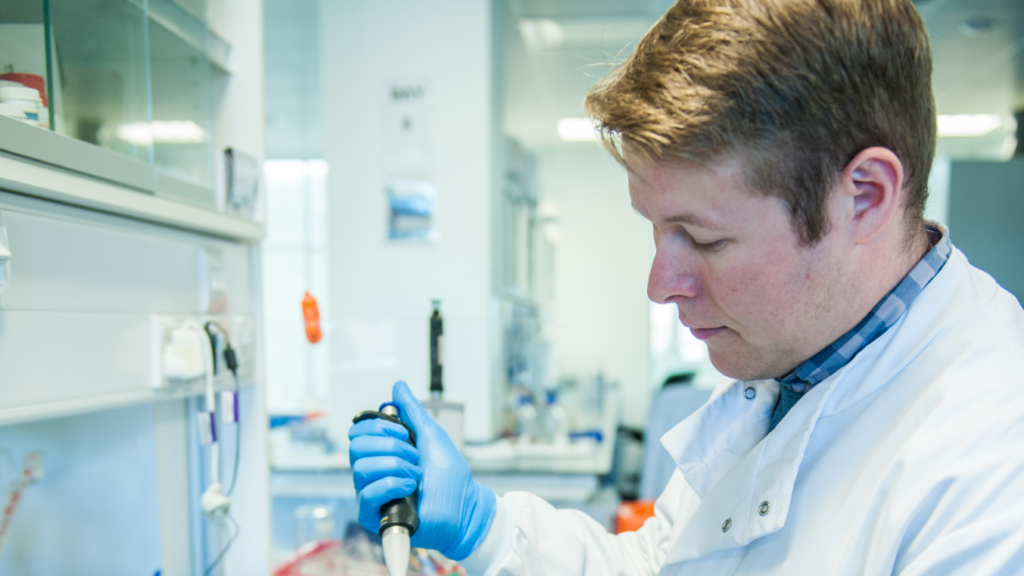Nearly £400,000 from Type 1 Diabetes Grand challenge to improve type 1 diabetes treatment

A new grant awarded to University of Exeter researchers from Type 1 Diabetes Grand Challenge will help understand a distinctive brain cell’s function in type 1 diabetes treatment.
The cutting-edge project led by Dr Craig Beall and Dr Tom Piers will explore whether a type of cell found in the brain can be used to develop long-lasting, effective beta cell therapies for type 1 diabetes. This study could benefit 6,415 living in Devon with type 1 diabetes, eliminating the need for multiple daily insulin injections, constant blood sugar monitoring, and prevent type 1 diabetes complications.
It is estimated that Type 1 diabetes accounts for eight per cent of diabetes cases in the UK. Type 1 diabetes occurs when the immune system attacks the insulin-producing beta cells in the pancreas. Brain cells also produce insulin. However, the insulin isn’t released in the right place or in high enough quantities to help manage blood sugar levels in type 1 diabetes.
This innovative research will explore whether it is possible to grow insulin-producing brain cells and pancreas beta cells together on an “organ on a chip” device. The aim is to produce clusters of cells that have both the brain cells’ ability to evade the type 1 immune attack and the beta cells’ ability to produce lots of insulin.
Dr Craig Beall, Senior lecturer at the University of Exeter, said: “We are really excited to have this funding from the Type 1 Diabetes Grand Challenge. This scheme really pushed us to harness brainpower to come up with the best possible ideas and to look for creative new concepts. The moonshot we’re aiming for is a cure that frees people with type 1 diabetes from insulin injections and immunosuppression, and this is the next step in that journey.”
The funding comes from the unprecedented £50 million investment by the Steve Morgan Foundation in partnership with Diabetes UK and Breakthrough T1D, which is supporting pioneering and multidisciplinary teams of researchers to develop new treatments and cures for type 1 diabetes. The University of Exeter is one of four universities leading the new projects, joining Imperial College London and the Universities of Oxford and Cambridge, which have also been awarded grants totalling over £1 million.
Dr Elizabeth Robertson, Director of Research at Diabetes UK, said: “These high-risk, high-reward, innovative projects exemplify the transformative potential of the research funded by the Type 1 Diabetes Grand Challenge. Bold, cutting-edge approaches, like turning to brain cells to shield and boost beta cells, help us to step closer to revolutionising the way type 1 diabetes is treated and improving the lives of those affected by the condition.”
Rachel Connor, Director of Research Partnerships at Breakthrough T1D, said: “We are thrilled to see the Type 1 Diabetes Grand Challenge powering this innovative research. This project at the University of Exeter exemplifies the kind of groundbreaking work that can happen when scientists have the opportunity to come together and think creatively.
“By exploring the potential of these insulin-making cells in the brain, this research could lead to innovative therapies that not only improve the lives of those living with type 1 diabetes but also help pave the way for a future without the burden of daily insulin management.”
The research is supported by the National Institute of Health and Care Research (NIHR) Exeter Biomedical Research Centre.



